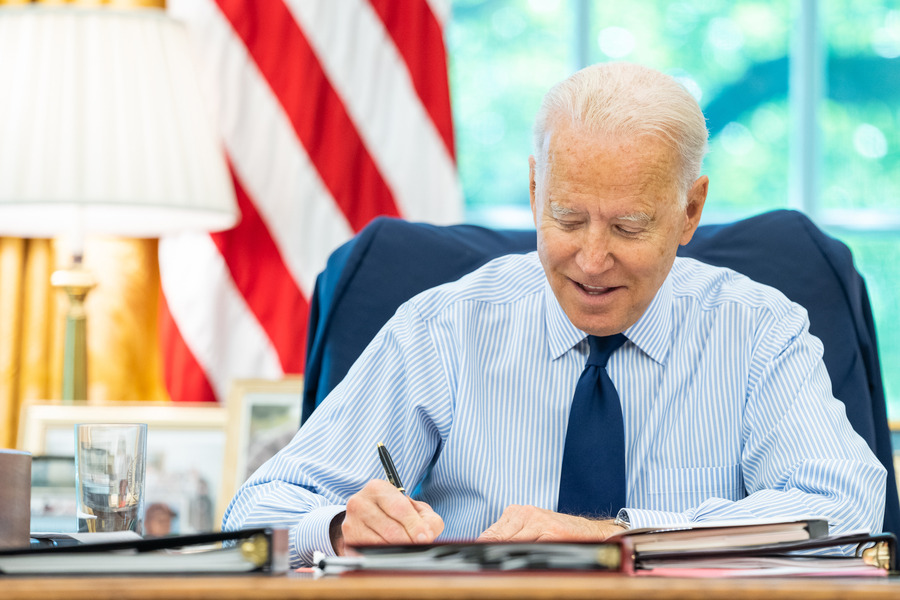A Bewildered Reply to Mary Dudziak
Ritika linked yesterday to this New York Times oped by USC law professor Mary Dudziak, which opens:
THE defense secretary, Leon E. Panetta, recently announced that America hoped to end its combat mission in Afghanistan in 2013 as it did in Iraq last year.
Published by The Lawfare Institute
in Cooperation With

Ritika linked yesterday to this New York Times oped by USC law professor Mary Dudziak, which opens:
THE defense secretary, Leon E. Panetta, recently announced that America hoped to end its combat mission in Afghanistan in 2013 as it did in Iraq last year. Yet at Guantánamo Bay and elsewhere, the United States continues to hold enemy detainees “for the duration of hostilities.” Indeed, the “ending” of combat in Afghanistan and Iraq appears to have no consequences for the ending of detention. Because the end of a war is traditionally thought to be the moment when a president’s war powers begin to ebb, bringing combat to a close in Afghanistan and Iraq should lead to a reduction in executive power — including the legitimate basis for detaining the enemy.Dudziak concludes:
Mr. Obama is trying to have it both ways. Ending major conflicts in two countries helps him deliver on campaign promises. But his expansive definition of war leaves in place the executive power to detain without charges, and to exercise war powers in any region where Al Qaeda has a presence.I confess myself baffled by this argument, but to the extent I understand it, it warrants a brief response. It is simply not true that the Obama administration contends--or is acting like--the end of hostilities has no consequences for detention authority. In Iraq, the United States once held tens of thousands of detainees. Now it holds, and claims the authority to hold, none. With respect to the war against Al Qaeda and the Taliban, the United States still has troops deployed in Afghanistan who are actively fighting Al Qaeda, the Taliban, and associated forces on a daily basis. Whatever the point at which hostilities can reasonably be said to be over for purposes of conveying detention authority, we are nowhere near that point yet. And critically, I don't know anyone in the Obama administration who would argue that detention authority will persist after hostilities really are over--any more than we took our prisoners with us when we left Iraq. Indeed, if the negotiations with the Taliban that are now getting started were to produce a peace deal, it's hard for me to imagine that detention authority would persist vis a vis Taliban detainees. It is true, as Dudziak says, that there is sometimes a lag between the time when combat operations cease and the time that detention authority lapses. But this is nothing new. It has happened in wars before; the armistice deal that stops the shooting is not always the triggering event for releasing every prisoner. Sometimes, the lag can even be long. It is also true that it is difficult to imagine even in conceptual terms that some negotiated end to the war with Al Qaeda--as distinct from the Taliban--would lead to the release of Al Qaeda prisoners. And this point raises a raft of vexing issues. But it is hardly fair based on this fact to accuse Obama of "trying to have it both ways" with respect to detention. If Al Qaeda and its co-belligerents were really and finally defeated, for one thing, that would vitiate the government's detention authority, at least in my view, absent some intervening act of Congress. But more fundamentally, Dudziak's implicit argument seems to me altogether perverse. She seems to be saying that in a conflict in which literally tens of thousands are actively fighting today, detention authority must ebb because the government hopes aspires to wind things down. That can't be right. Let me propose a simpler alternative frame for this discussion: As long as the United States is fighting the Taliban, it has the authority to detain members of the Taliban. As long as the United States is fighting Al Qaeda or groups that are functionally part of or co-belligerent with Al Qaeda members, it has the authority to detain members of Al Qaeda. And when either conflict can meaningfully be said to be over, detention authority will end with it--just as detention authority did, in fact, end in Iraq.
Benjamin Wittes is editor in chief of Lawfare and a Senior Fellow in Governance Studies at the Brookings Institution. He is the author of several books.





